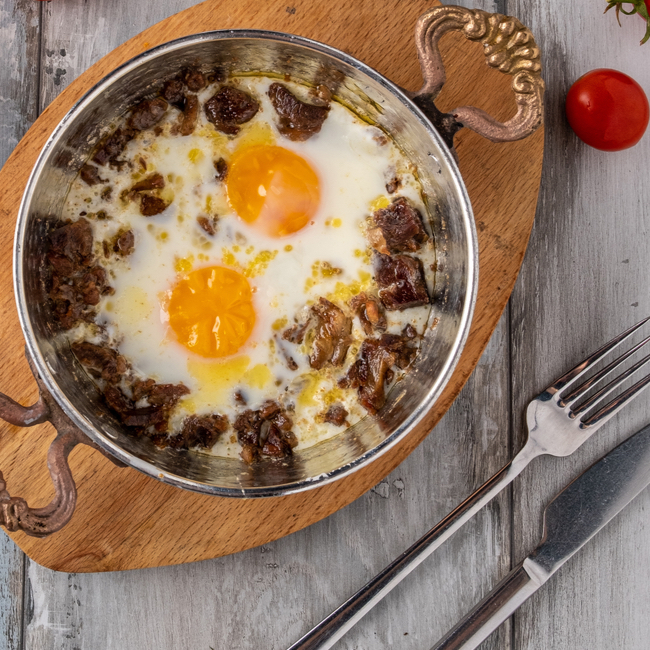Eggs are a great daily food option for anyone trying to lose weight since they are packed with essential vitamins and minerals and versatile enough to be a tasty part of any meal (not just breakfast!) Although they have undeniable health benefits, there are ways you might be adding extra unnecessary calories or other fattening elements when preparing them. We checked in with health experts to determine 2 common mistakes made when cooking eggs and how they might inadvertently deter your weight loss journey. Read on for health and egg-related weight loss tips from registered dietitian and nutritionist Sara Chatfield, MPH, RDN, functional nutritionist Amy Lippert, NTP and registered dietitian and nutritionist, Amy Adams, RDN, LDN.


Common Mistake #1: Adding Too Many Fattening Foods To Eggs
As Chatfield helps explain, eggs are “actually a great food for weight loss, being low in calories, high in protein and other beneficial nutrients, and providing satiety after a meal.” Some ways you can accidentally pile on extra calories when making eggs, she says, are using too large a serving (generally more than 2-4 eggs per meal) or adding high calorie ingredients such as butter, meats and cheeses, or creamy sauces to your egg-powered meal.
Adams agrees, and adds that processed meats or other high-fat foods to egg-based dishes can lead to weight gain, and defeat the healthy purposes eggs can provide. “The biggest mistake I've seen is people pairing eggs with food items which are high in saturated fat,” she says. For example, she continues, “many people prepare bacon and eggs or eggs and sausage.” While this is “okay occasionally,” Adams suggests trying to add fruits or vegetables on the side instead, if weight loss is your goal. (These are much less likely to contribute to weight gain and have additional health benefits on their own, anyway).

Common Mistake #2: Using Too Much Oil To Cook With
While you’ve probably been advised to avoid adding too much fat to your meals, Lippert points out that we do need some healthy fat, even if trying to lose weight, which eggs can be a good source of. “Our bodies need fat for many of its daily functions and for our health, so adding some good whole food fats to the diet isn’t a bad thing,” Lippert says. She advises to focus on “removing inflammatory ingredients that lead to weight gain or make it difficult to lose weight,” such as vegetable oils, margarine, and oil sprays as these contain “trans fats and chemicals that can lead to chronic symptoms.”
Lippert adds that a major mistake made while cooking eggs is “using inflammatory ingredients like margarine, vegetable oil, or oil sprays, and adding too many cured meats (ham/bacon) too often as this can be inflammatory.” Regarding oils used to cook eggs, Lippert says you “only need about 1-2 teaspoons,” so any amount over that could contribute to weight gain if you aren’t careful.

Additional Tips Re: Preparing Eggs For Optimal Weight Loss
To cook eggs for optimal health and to promote weight loss, Chatfield and Lippert share several delicious suggestions. “Great ways to prepare eggs while watching calories are hard- or soft-boiling eggs, or frying or scrambling using a non-stick spray or a little olive oil,” Chatfiled says, advising to “add just a touch of salt or toss in some veggies,” as well.
Lippert says her best “advice when eating eggs” includes eating the “whole egg,” firstly, as it is “super nutritious.” She then says adding fresh or frozen veggies can “increase the nutrient density,” while using “a small amount of real fats to cook your eggs in like ghee, grass-fed butter, EVOO or Avocado Oil.” She also notes that these oils can come in spray form if that is what you’re used to using or want to try an easier cooking option.
Ultimately, there are ways you can make egg dishes unhealthy, but more importantly, many options for letting their nutritious contents benefit your overall health and potential to lose weight.


























